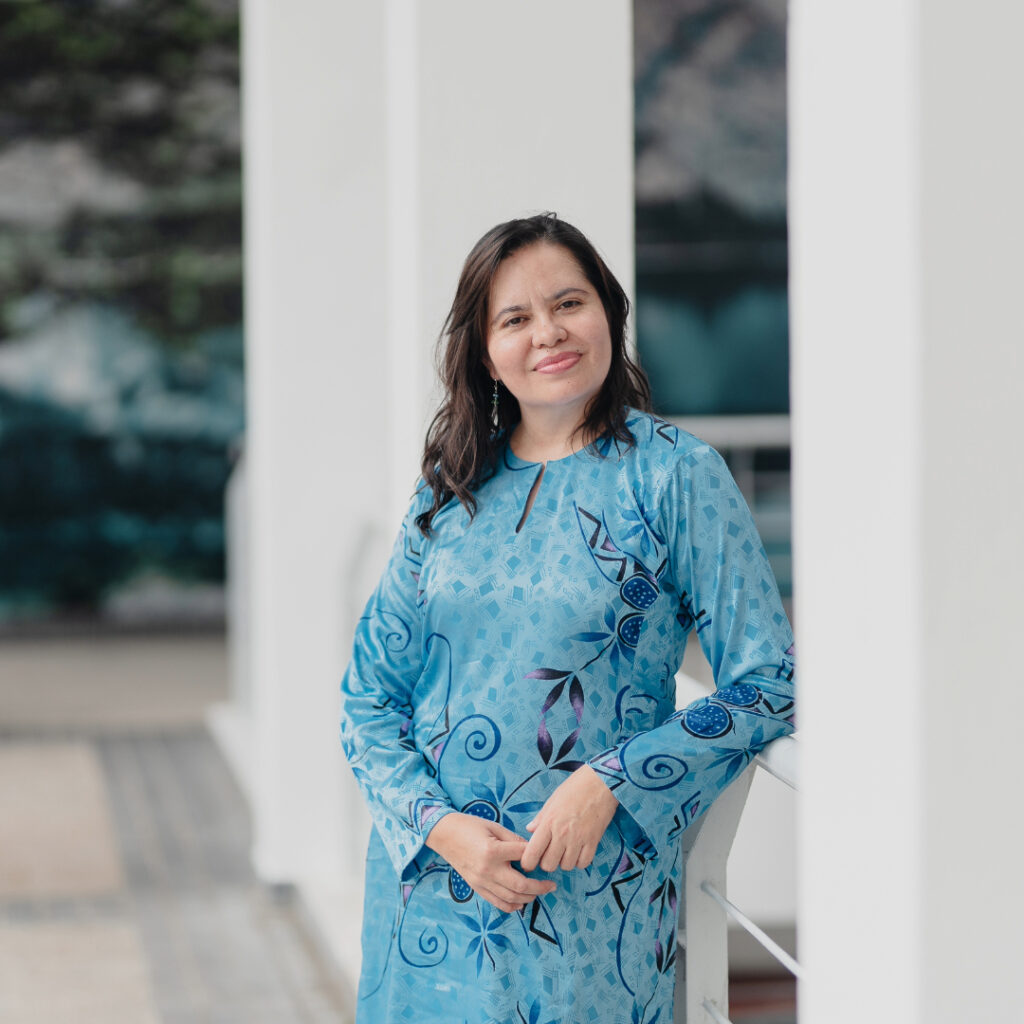
Why do we only hear the Argus Pheasants in the distance on the mountain tops? Why do the nightingale and the cricket call out to the moon? Who is Ronai?
Our Bidayuh elders know the answers.
In the olden days, Bidayuh children in the longhouses would gather after dinner to listen to dondan – stories about great Bidayuh warriors, clever animals, and spiritual beings. This was a form of entertainment for the children and a way to pass traditional beliefs and moral values to the young ones.
Today, this oral ritual has started to fade. Children prefer to scroll their phones, watching online videos, playing games, devouring social media contents.
Dr. Yvonne Michelle Campbell found this trend disturbing. Coming from a mixed parentage, with a Bidayuh mother, Yvonne grew up listening to stories from her grandmother. A deep passion for stories, particularly folktales, myths, and legends, took root.
“But there are very few books on Bidayuh folktales, and even these are not easily found,” she explained. “I feel like we are going to lose a lot of indigenous knowledge that has been passed down from generation to generation in the Bidayuh community.”
Driven by this, Yvonne started to collect Bidayuh dondans. She travelled to various villages with her assistant researchers Jason Jipow and Jill Beon, seeking storytellers. She found some of them in Kupuo Duyoh, Sarasot, Stass, and Tringgus. They were old, and their memories were not what they used to be. Their language was, at times, from another era. Some words did not even have modern equivalence or have changed so much that the meaning was not the same at all.
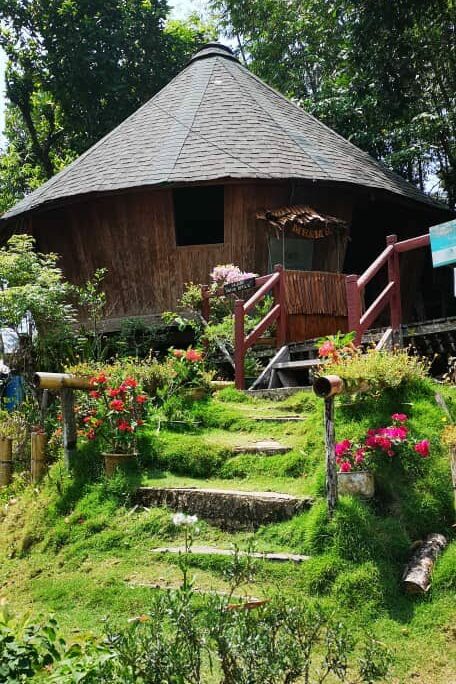
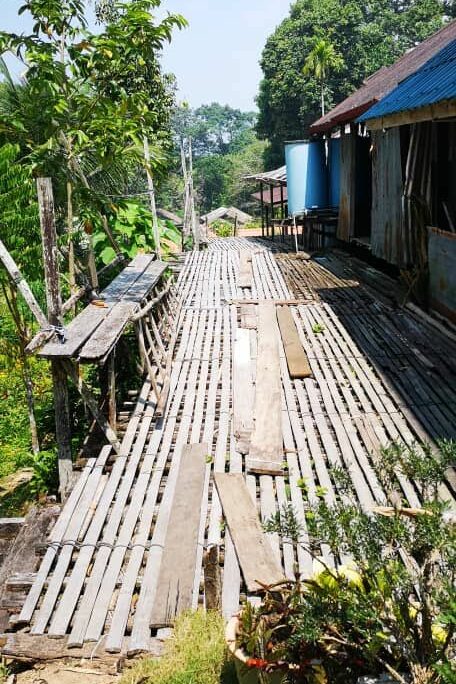
“We got this phrase for instance: pinimul pingaji sikadod sikonyang. My informants told me that it means ‘long life, prosperity and blessed’. But in the olden days, pinimur pingajih sikadod sikonyang was a metaphoric expression to refer to padi, to ensure that people do not forget the origin and to respect padi.”
The storytellers were eager to share. They told Yvonne why crickets and nightingale call out to the moon. Why the Bidayuh in the olden days were forbidden from going hunting during a full moon. Why it is forbidden to refuse a child food. Who Konang and Ronai were.
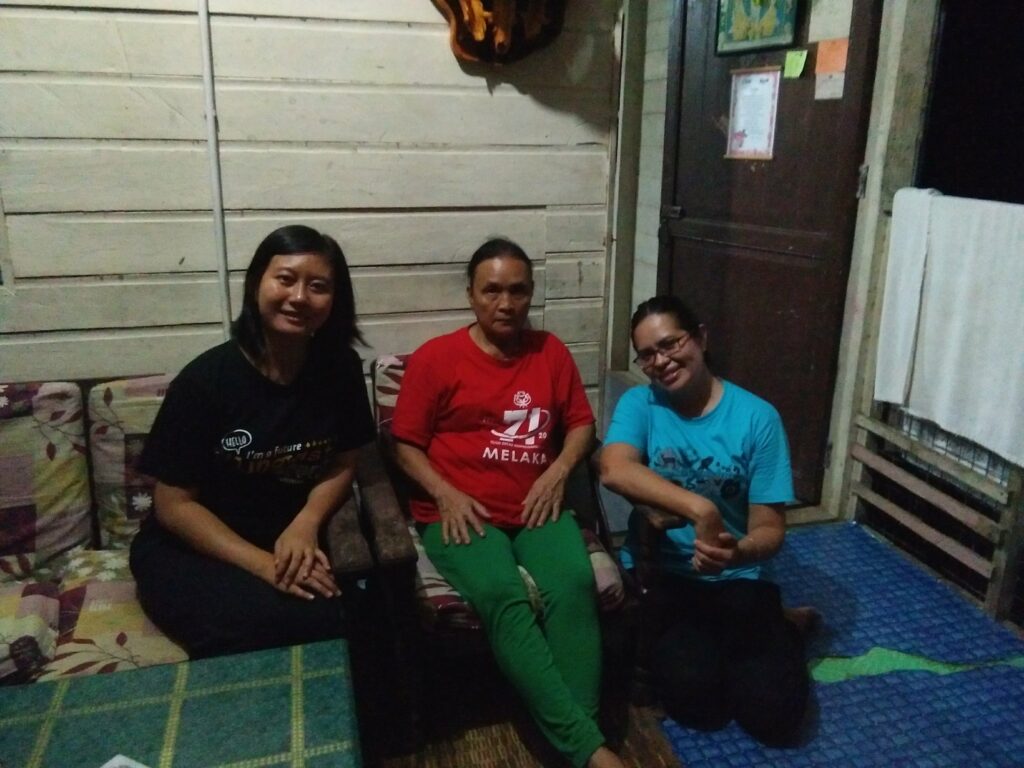
Inspired, Yvonne chose four dondan to be put in a collection: The adventure of Ronai and her son to visit the Moon King; how Konang, the bird spirit helped Lomow; Sikau Bunga’s trip to visit his grandparents; and a never-ending mother’s love. She enlisted the talented Nini Havela Dishong to illustrate the book.


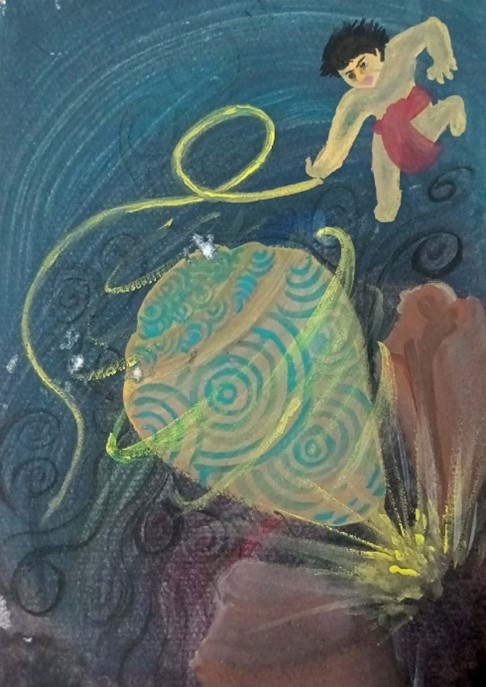
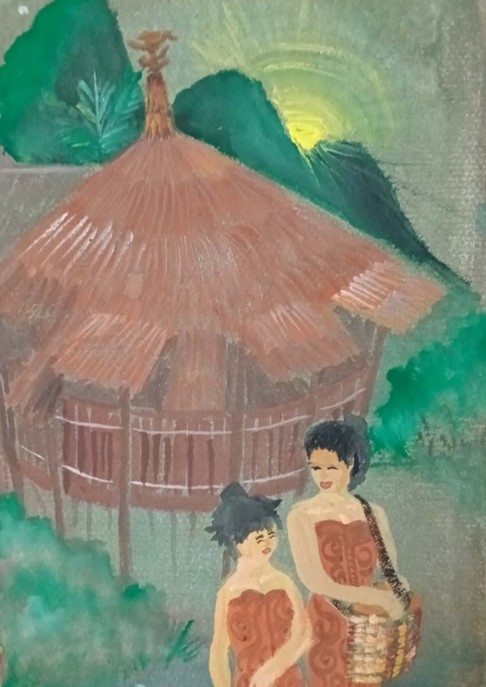
Yvonne has promised herself that she would continue her search for more Bidayuh dondan.
“People may not notice the impact of this intangible cultural heritage but try and think for a minute. If I say Badang, Bawang Merah and Bawang Putih, Cinderella, Snow White, Sleeping Beauty. Can you recall the narratives? Are they not part of your memories? Did they not teach you one thing or another?”
Indeed. Perhaps, every now and then, we just need to switch off our laptops, disconnect our mobile phones, and just listen, listen to the calls of crickets and pheasants and marvel at the stories from our ancestors.